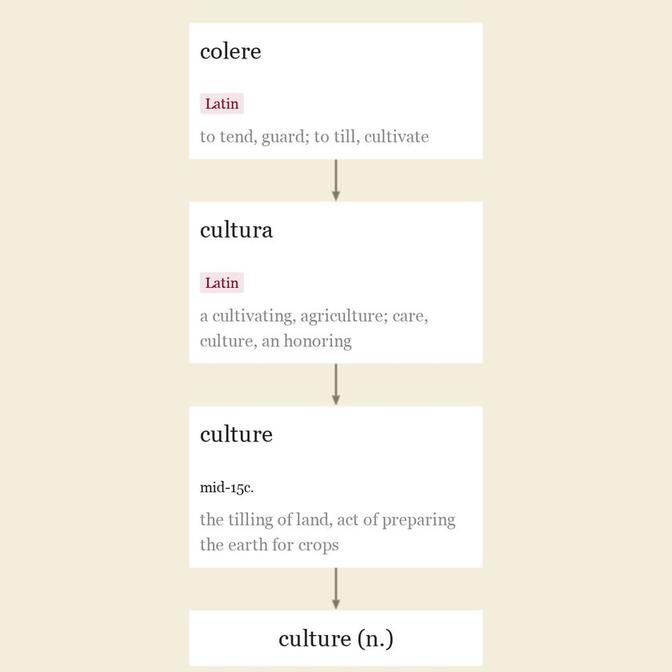acculturation n.
"
Entries linking to acculturation
word-forming element expressing direction toward or in addition to, from Latin ad "
Simplified to a- before sc-, sp- and st-; modified to ac- before many consonants and then re-spelled af-, ag-, al-, etc., in conformity with the following consonant (as in affection, aggression). Also compare ap- (1).
In Old French, reduced to a- in all cases (an evolution already underway in Merovingian Latin), but French refashioned its written forms on the Latin model in 14c., and English did likewise 15c. in words it had picked up from Old French. In many cases pronunciation followed the shift.
Over-correction at the end of the Middle Ages in French and then English "

mid-15c., "
The figurative sense of "
For without culture or holiness, which are always the gift of a very few, a man may renounce wealth or any other external thing, but he cannot renounce hatred, envy, jealousy, revenge. Culture is the sanctity of the intellect. [William Butler Yeats, journal, 7 March, 1909]
Slang culture vulture "
updated on October 18, 2016